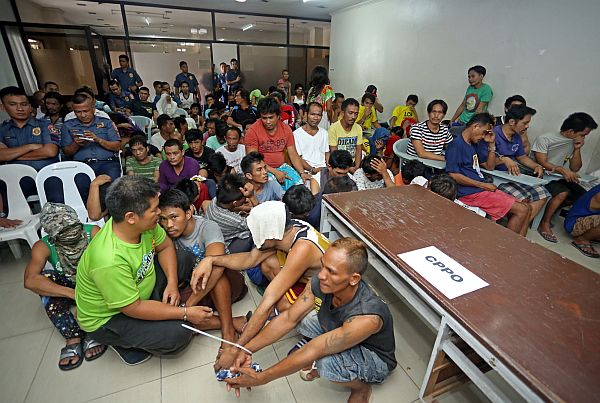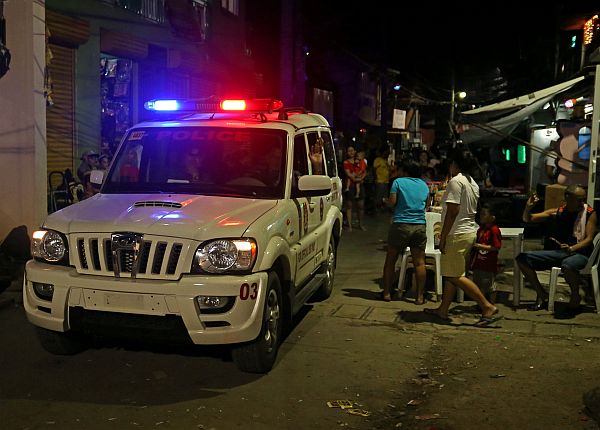Securing your homes for the holidays and beyond
Be vigilant.
Or better yet, be paranoid and install double locks at home.
Such was the advice given by the Cebu City Police Office (CCPO) as the holiday season begins to unfold.
According to CCPO director Senior Supt. Joel Doria, data would show a rise in crimes committed in homes during the holidays when families opt to go on vacations or attend gatherings with relatives and friends.
“Patuloy naman tayo nagbabantay pero yung maganda diyan dapat aware din tayo sa ating personal security lalo na sa bahay (Police are always on the watch, but it would be much better if the people themselves would be aware of their own personal security especially at home),” said Doria.
From January to September this year, a total of 346 robbery and theft cases perpetrated inside homes were recorded in Cebu City.
The cases include the break-in of an apartment in Sitio Nivel Hills, Barangay Busay, which left a young disc jockey, Marie Alexi “Maxi” Bolongaita, dead with two gunshot wounds on her chest last September 20.
Homicide investigators found Maxi leaning against the wall of her bedroom, with a .22 revolver with five empty shells and a kitchen knife lying close to her body — all signs of a futile attempt to ward off a vicious attacker.
Maxi’s alleged killer, Reynante Mambiar, was arrested shortly after the attempted robbery.
Feeling unsafe
Maxi’s fate and those of others, leave many fearing for their safety.
Raychia Padilla, 23, feels unsafe even while inside her own house in Barangay Kinasang-an, Pardo, Cebu City.
Padilla believes that even if their house has double locks, criminals will always find a way to open doors.
“Robbers are different now. They always find ways to steal,” Padilla said in Cebuano.
Padilla, who lives with her parents and two younger siblings, said that she could not anymore count the number of times their house was robbed.
“Our house is just beside the highway. But I still feel unsafe,” Padilla added.
Due to the demands of her job, Padilla, an engineer, comes home late at night.
With several unfamiliar faces lurking in her neighborhood, she said, she has gotten paranoid.
“Sometimes there were drunkards on the street fighting. I sometimes see people who are not from our community,” the engineer said.
Jake Ilustrisimo, a 25-year-old home-based video editor, shares Padilla’s sentiments.
Ilustrisimo, a resident of Barangay Bulacao, notes that criminals are now bolder and wiser.
“There was even a time when we had relatives at home and so the house was full, and yet, thieves still managed to steal our cell phones,” Ilustrisimo said.
Following the incident, the Ilustrisimo installed grills on their windows and bolt locks on their doors.
Police, tanods visibility needed
Of the 346 robbery and theft cases committed from January to September this year, close to 80 percent or 273 cases occurred in public residential areas or the slums.
Fifty-two other cases were recorded in subdivisions or residential areas with no security personnel while 21 cases were reported in gated communities with security guards.
Padilla and Ilustrismo both believe that the lack of police or barangay tanod visibility is the reason why thieves thrive.
“Because there is no police whose mere presence could deter crimes,” said Padilla, explaining that she has not seen even a single cop patrolling their place.
“Daghan kaayo nakawatan diri nga ang pasanginlan dili taga diri sa amoa (There had been so many robbery incidents here in our place and the suspects are not from here,” said Ilustrisimo, adding that village watchmen are not roving the streets.
“Looks like we need to do something instead of relying on authorities for our safety. So we need to be proactive,” Ilustrisimo said.

OPLAN POKEMON.The Cebu City Police Office’s One Time Big Time operations or Oplan Pokemon lead to the arrest of hundreds linked to illegal drugs, illegal gambling and petty crimes. Above is a June 19, 2017 photo of suspects arrested in this kind of police operation.
(CDN PHOTO/LITO TECSON)
Security at home
On the part of police, Doria explained that there are 11 CCPO stations covering 80 barangays of Cebu City.
While police conduct foot patrols, Doria admitted that it is impossible to cover all areas.
“Tandaan natin na ang area ng Cebu City napakalaki kahit mag-roving yung kapulisan natin, yung mga kriminal binabantayan din nila yung police natin. So pag alis ng police doon sila gagawa ng krimen (Let’s remember that the area of Cebu City is huge and even if our policemen do roving, criminals also watch out for them. So the moment the cops leave, they commit crime),” Doria said.
Doria urged the public to do their share by securing their homes and saving police emergency numbers on their cell phones.
According to Doria, locking doors and windows is basic security protocol that should be done habitually.
While this may not totally eliminate crimes committed inside homes, Doria said this will help deter crime along with putting up grills and gates for added security if the homeowners could afford it.
Doria added that people should also safely hide valuables so as not to tempt thieves and robbers.

POLICE VISIBILITY ENCOURAGED. More police foot and mobile patrols in Cebu City’s barangays are encouraged by residents to deter thefts and robberies in these areas.
CDN FILE PHOTO
Crime index
Police Investigation and Detection Management Branch (IDMB) chief Supt. Ryan Devaras said robbery is committed when force and intimidation are applied, while theft is the stealing of things without having to break into a house or property.
Devaras said that based on their interviews, the suspects would often claim that poverty drove them to commit crime.
Devaras said that although 346 robbery and theft cases were recorded so far this year, the number is almost only half the number of cases reported in the same period last year.
Devaras credits government’s intensified anti-drugs campaign, which began in the middle of 2016.
CCPO’s “One time big time,” also dubbed as Oplan Pokemon, conducted by all 11 police stations in Cebu City resulted in the arrest of not less than 50 suspected criminals every week.
According to Devaras, the reduced robbery and theft cases this year also shows the effectiveness of the police campaign against illegal drugs.
But even more importantly, robbery and theft could be avoided if every Cebuano practiced vigilance, Devaras said.
Disclaimer: The comments uploaded on this site do not necessarily represent or reflect the views of management and owner of Cebudailynews. We reserve the right to exclude comments that we deem to be inconsistent with our editorial standards.

